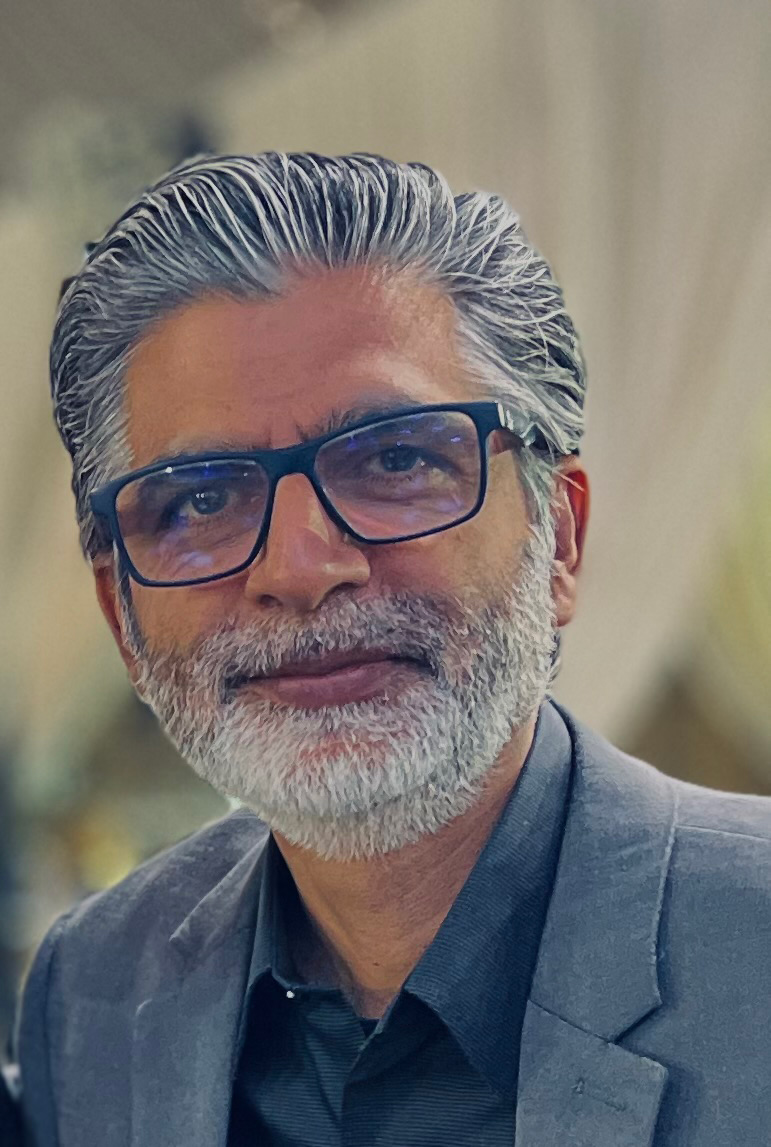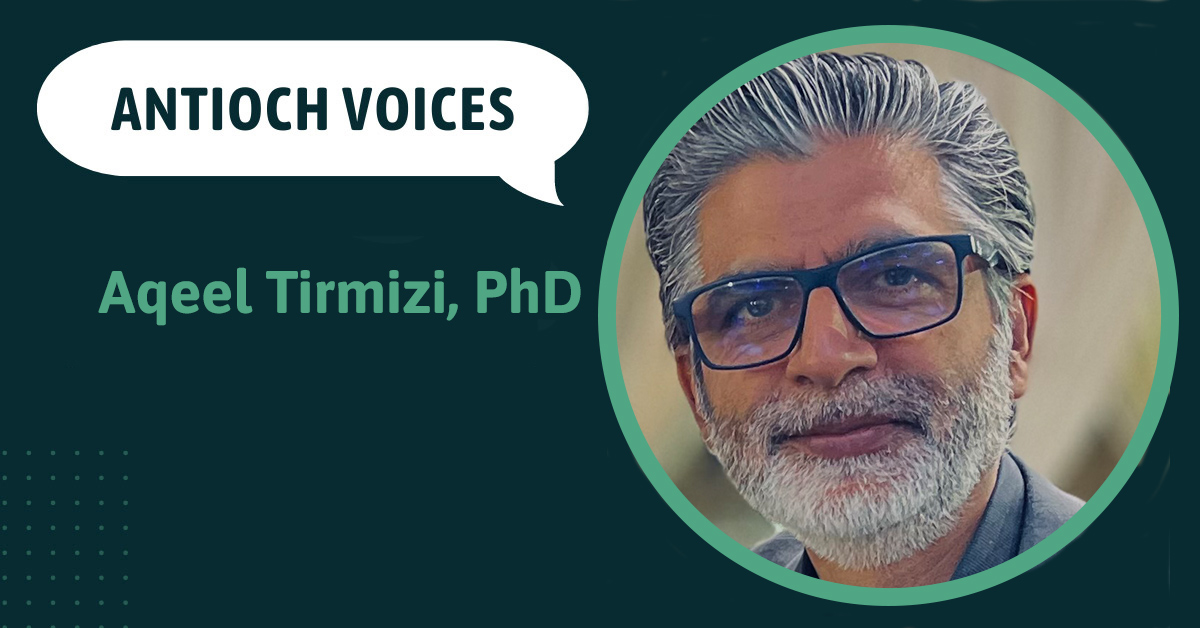This essay is part of Antioch Voices, a forum for Antiochians to speak out about issues important to them. Opinions expressed here belong to the author alone and do not necessarily reflect the official position of Antioch University. If you’d like to share your own voice, the first step is to send a short description of what you are planning to write about to [email protected].
“We have to choose between dialogue and utter devastation.”
— Aung San Suu Kyi
While the basic idea of democracy is generally understood, to set the stage for this reflective article, it is useful to highlight some of its key aspects. The foundation of all democratic experiments center around freedom, equality, and justice for citizens. These freedoms include the ability to make informed choices and provide input in economic, social, and political arrangements that impact citizens individually and collectively. Democratic constitutional arrangements bestow power to citizens and are meant to serve their interests through a variety of institutional mechanisms. These mechanisms include the authority given to the executive, the legislative, and the judiciary branches of governance. Democratic systems also rest on commitments to pluralism, compromise, and responsibility in crucial and important ways. I believe these commitments provide a humanistic glue that determines the health and sustainability of democracies.
Towards the end of the 20th century, it appeared that the world had made important progress in advancing the democratic experiment. This progress led the political scientist Francis Fukuyama to announce The End of History, concluding that liberal democracy has prevailed. However, in this first quarter of the 21st century, the democratic experiment is facing several existential challenges around the world. These challenges include increasing citizens’ distrust in democratic institutions, leaders acting irresponsibly, over-sized influence of corporate interests, and liberal democracy’s unfulfilled promise of socioeconomic equity. How did we get here? Obviously, much has been written about the state of democracy recently, in the U.S. and elsewhere, and fierce debates continue as an estimated four billion people go to the polls during 2024. My purpose here is in not to offer a comprehensive analysis or solutions to the major threats to the democratic experiment. Instead, I offer some reflections on two dynamics that contribute to democratic deterioration—especially its pluralistic grounding, and a potential pathway that may help with some of the challenges.
The first dynamic is the distance that emerges (or is created) between citizens and democratic decision-making platforms, institutions, and leaders. In many countries, the over-professionalized political machinery, laced with billions of dollars of campaign and lobbying money, creates a distance between voters and decision-makers, especially at the state and federal levels. During the election season, especially in the United States, we continually see candidates scurrying around rural areas and inner cities with quick stops at diners and ice cream shops to shake hands and greet their constituents. But in terms of these candidates’ policy and legislative work, we see them stalemated across party lines both at the state houses and federal capitals. The constituents are quite removed from these dynamics except those with vested interests and powerful lobby machinery. In that sense, democracy can exist technically but can easily be hijacked or move away from its tenets of keeping citizens choice, freedom, and interests at the center. As we create more distance between the decision-making centers and ordinary citizens, democracy begins to face threats and societal discord, and distrust begins to surface. Glaring examples of this distrust are evident in the U.S. and the European Union. Consequently, the foundational elements of democratic systems namely freedom, service, trust, and pluralism, begin to erode. In the U.S. context, The Chicago Council on Global Affairs reports that 67% of Americans see its weakening democracy as a critical threat to the country.
The second and related dynamic is the weakened engagement in democratic deliberation. This deliberation entails listening, debate, and dialogue, informed by evidence on the relevant issues as well as inclusion of diverse voices. In other words, the second dynamic is the absence of or weakened deliberative democracy. According to the University of Northern Iowa, “Democracy is the best basis for social organization because the logic of democracy denies that absolute truth can be known with certainty, and therefore allows for diversity, tolerance, openness to change, and recognition of error.” The great visionary thinker Mary Parker Follett envisioned the weakening of deliberative democracy as the U.S. federation was maturing along with the increase in industrialization, over a century ago. Her idea of direct democracy was meant to lessen the distance between powerful institutions of democracy and voices of ordinary citizens.
While urgent and serious work is needed on multiple fronts to address the many challenges that democracies face today, one pathway forward is to reclaim the institution of deliberative democracy. Claudia Chwalisz noted two core elements of deliberative democracy: “deliberation (careful and open discussion to weigh the evidence about an issue) and representativeness, achieved through sortition (random selection).” And Jennifer Eagan adds the following important perspective: “with respect to individual and collective citizen decision making, deliberative democracy shifts the emphasis from the outcome of the decision to the quality of the process.” These two perspectives capture the simple but powerful principles of deliberative democracy. Deliberative democracy holds the potential to address the dynamics of increased distance between decision-making platforms and citizens as well as the lack of informed and deep dialogue among key constituents with diverse and opposing views. Equally importantly, it offers mechanisms to bring pluralism, compromise, and responsibility back into our democracies.
We are beginning to see amplified interest in and experiments with deliberative democracy in several countries including the United States. The focus of these experiments includes increased consultation with citizens on planning priorities, with the aim of engaging them in efforts to address entrenched and thorny issues. Examples of deliberative democracy initiatives from around the world include Citizen Assemblies (UK), Planning Cells (Germany), Participatory Budgeting (Brazil), Citizens Initiatives Reviews (U.S. and Switzerland), and Citizen Councils (Belgium). These examples show that deliberative democracy initiatives may take several forms at the local, regional, national, or global levels.
The work in Ireland is particularly noteworthy in this regard. The country initiated a Citizen Assembly between 2016 to 2018 to directly seek citizen input and engagement for reforms to its abortion legislation. About 99 randomly selected citizens representing diverse backgrounds (gender, social class, age, and geography) and perspectives were invited to serve on this assembly and make recommendations. Their positions ranged from pro-life, pro-choice, to undecided. The Assembly deliberated for a period of five months between 2016 and 2017 to form a set of recommendations. The deliberations included listening to medical, ethical, and legal experts; review of data and information; hearing testimonies; and conducting extensive conversations and debates. The Irish parliament debated the Assembly’s recommendations leading to the referendum of 2018. Subsequently, this referendum led to the repeal of the Eight Amendment of the constitution dealing with abortion. The Irish experience clearly demonstrates the enormous potential of deliberative democracy to address entrenched and divisive societal issues. The example also shows that the deliberative processes complement and strengthen elements of representative (parliament) and direct (referendum) democracy.
The America in One Room experiment with deliberative polling, further confirms the potential of deliberate democracy in polarized environments. The Deliberative Democracy Lab at Stanford University, Helena—a nonprofit organization, and NORC at the University of Chicago, assembled a nationally representative sample of over 500 citizens with diverse political views just before the 2020 elections. The experiment involved deliberations on a series of divisive issues with the aim of arriving at policy proposals. The topics included immigration, the economy, climate change, healthcare, and foreign policy. The experiment’s findings revealed that, following their engagement, both Republicans and Democrats moderated their perspectives on most of the issues. Additionally, both sides reported a more than 13-point increase in positive feelings towards the other.
Much work is needed in our communities, universities, cities, and governments to reclaim the spirit of deliberative democracy and rekindle more cohesive ways of co-existing. In closing, I borrow the following words from Walt Whitman, “….I cannot too often repeat that Democracy is a word the real gist of which still sleeps, quite unawakened, notwithstanding the resonance and the many angry tempests out of which its syllables have come, from pen or tongue. It is a great word, whose history, I suppose, remains unwritten because that history has yet to be enacted.”

Aqeel Tirmizi, PhD
Aqeel Tirmizi, PhD, is a Professor of Leadership and Organizational Behavior at Antioch University’s Graduate School of Leadership and Change. His teaching and research focus on responsible leadership, humanistic management, social innovation, and cross-cultural leadership. Aqeel’s current work focuses on integrating research wisdom to meaningfully inform leadership and organizational practices and contribute to improving the human condition. Read his full bio.





